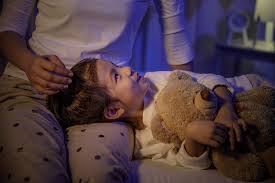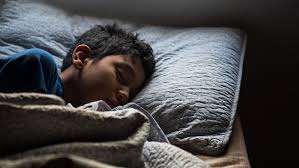
INDIANA – A good night’s sleep can make or break a student’s success in school and life. Quality rest and sufficient sleep create better outcomes in academics, social settings, mental functioning, motivation, emotional regulation, and physical energy, among other things.

A student may not be sleeping well for many reasons, such as staying up too late, mental illness, stress, poor health in general, etc. Establishing good sleep hygiene is essential. Many think of hygiene as related to cleanliness, but hygiene is simply doing what is conducive to maintaining health. Sleep hygiene maintains our health on a multitude of levels.
Below is the recommended amount of sleep by age, according to the Mayo Clinic:
| Infants 4 months – 12 months | 12 to 16 hours per 24 hours, including naps |
| One to two years | 11 to 14 hours per 24 hours, including naps |
| Three to five years | 10 to 13 hours per 24 hours, including naps |
| Six to 12 years | 9 to 12 hours per 24 hours |
| Thirteen to 18 years | 8 to 10 hours per 24 hours |
| Adults | 7 or more hours per night |
Establishing good sleep hygiene as early as possible is important for student success. It may feel daunting as a parent or student if routines have not been previously implemented. In some cases, strategies may have been attempted and failed, but consistency is key, and it may take some trial and error.

Families can help by encouraging structure and participating in healthy nighttime routines. Consult a doctor if a healthy routine isn’t working. In some cases, families may need to advocate for a sleep study if rest is not improved with good hygiene.
The following tips for sleep hygiene are provided by the Children’s Hospital of Orange County:
- Stick to the same bedtime and waketime every day, even on weekends. Staying up late during the weekend and then trying to catch up by sleeping in can throw off a child’s sleep schedule for several days.
- Beds are for sleeping. Lying on a bed and doing other activities makes it hard for your brain to associate your bed with sleep.
- Establish a comfy, cozy room. A bedroom should be cool, quiet and comfortable.
- Alarm clocks are for waking up. Youths who stare at the clock, waiting and hoping to fall asleep, should have the clock turned away from them.
- Stick to a bedtime routine. A predictable series of events should lead up to bedtime. This can include brushing teeth, putting on pajamas, showering, reading, etc.
- Engage in only quiet, calm and relaxing activities before bedtime. Listen to soft, calm music. Avoid excessively stimulating activities, such as screen time and physical exercise. It is best to keep screen time out of the bedroom and limit use to at least one hour before bedtime.
- Relax. Practice deep breathing and imagining positive images that bring happiness and comfort.
- Start the day off right with exercise. Exercise and physical activity earlier in the day can help children focus, feel more energetic and awake during the day, and fall asleep and stay asleep later that evening.
- Avoid caffeine. Avoid caffeine in the late afternoon and evening. It can cause nighttime awakenings, shallow sleep, and/or prevent one from falling asleep.
- If you can’t sleep, get out of bed. Get up and do something non-stimulating, such as reading a book. Repeat for 20-30 minutes if necessary. Getting out of bed prevents the bed from being associated with sleeplessness.
- Put kids to bed drowsy but awake. The ideal time for a child to go to bed is when they are sleepy but still awake. Allowing them to fall asleep in places other than their bed teaches them to associate sleep with different areas.
- Cuddle up with a stuffed animal or soft blanket. A security item such as a stuffed animal or blanket can comfort all ages.
- Bedtime checkups should be short and sweet. Checking in on a child is to let them know you are there and everything is okay. A check-in should be brief and non-stimulating.
- Maintain a sleep diary. Track naps, bedtimes, wake times, and behaviors to find patterns if things are not going well. If necessary, report the diary to a doctor for further discussion.

With these tips, hopefully, your child can establish good sleep hygiene and get quality rest so they can be at their best.

Katie Martin, MSW, LCSW, CSAYC, is a Youth First Mental Health Professional at Bosse High School in Vanderburgh County. Youth First, Inc., is a nonprofit dedicated to strengthening youth and families. Youth First provides over 100 highly trained mental health professionals (primarily master’s level social workers), prevention programs, parent engagement coordinators, and bilingual support personnel to 126 schools across 14 Indiana counties. Over 52,000 youth and families yearly are served by Youth First’s school-based social work and community programs that promote mental health, prevent substance misuse, and maximize student success. To learn more about Youth First, visit youthfirstinc.org or call 812-421-8336.



